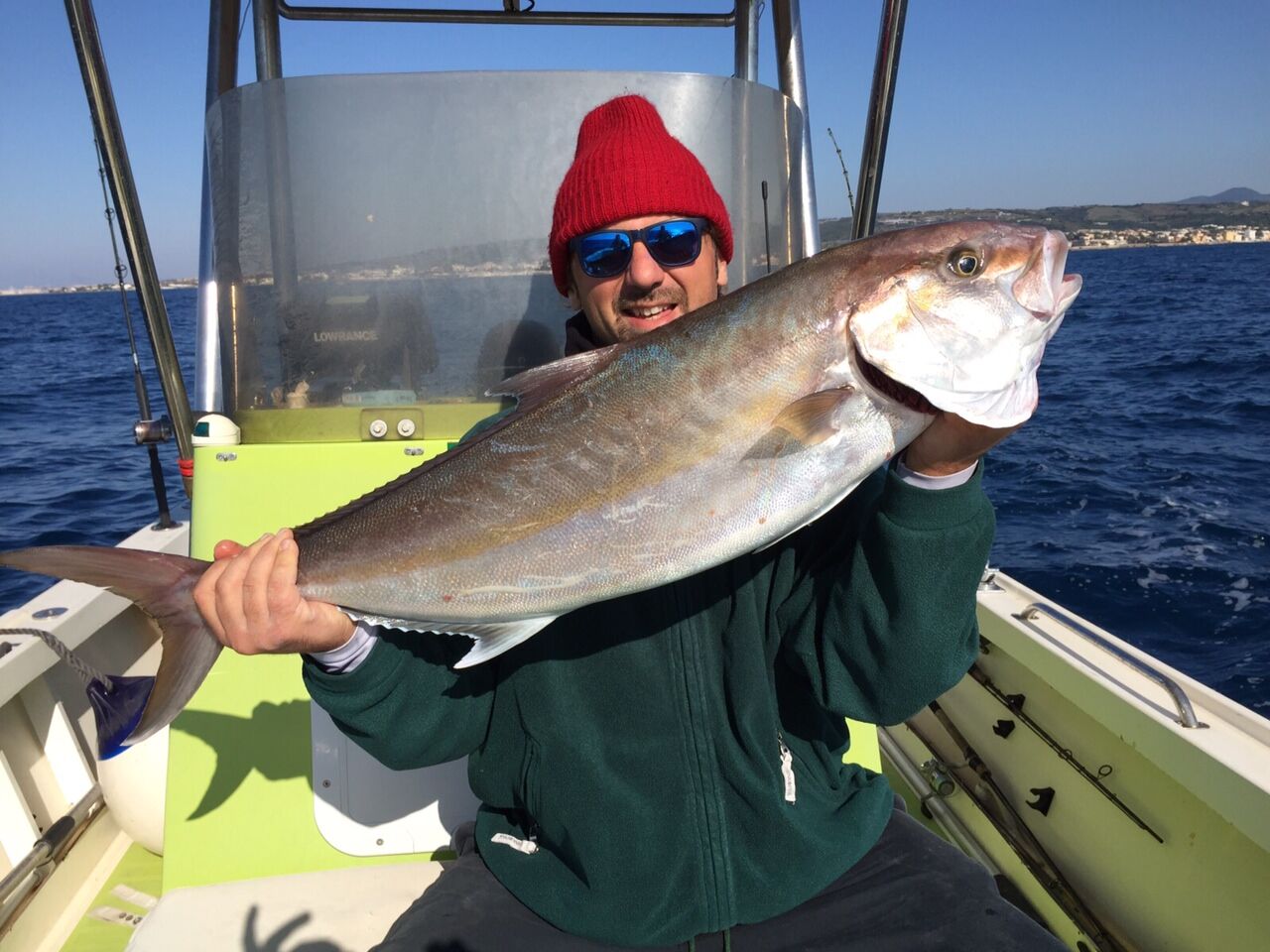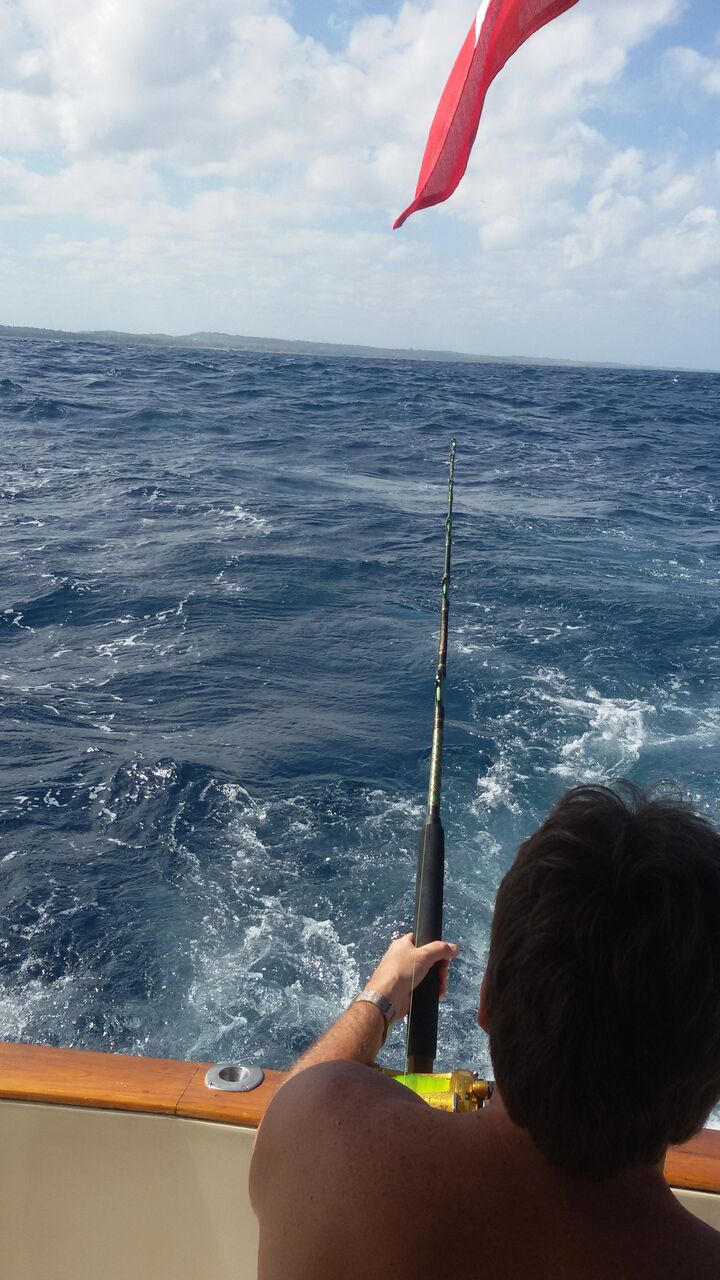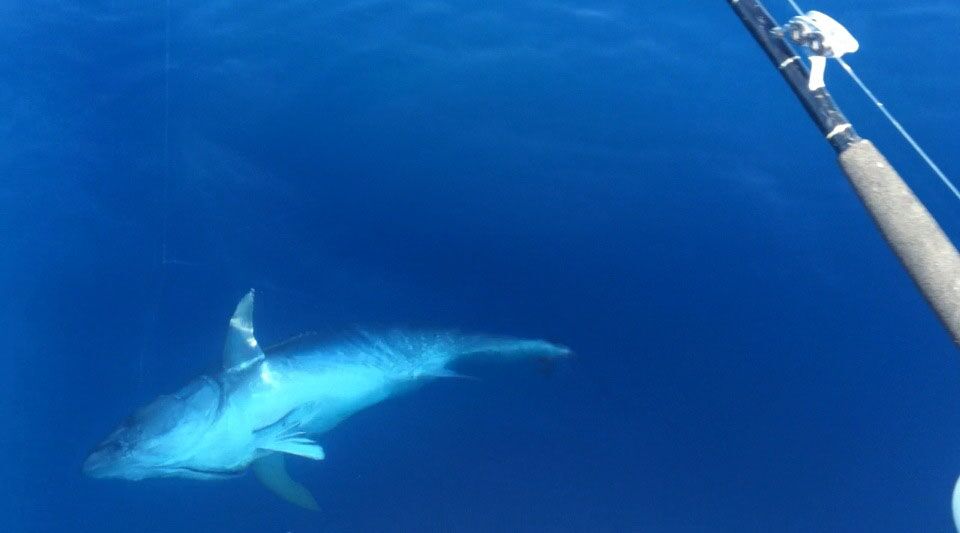The role of Recreational Fisheries in the sustainable management of marine resources

Introduction
Recreational fishing (RF) is defined as the “fishing of aquatic animals (mainly fish) that doesn’t constitute the individual’s primary resource to meet basic nutrition needs and are not generally sold or otherwise traded on export, domestic or black markets.” RF operate within a competitive sphere among commercial fisheries, which may harvest from the same stock. RF can provide diverse revenues and opportunities; with a widely promoted catch and release policy within this sector, RF allows for a multiplication of value per fish actually harvested.
Providing global estimates of participation in RF is difficult due to limited data available, particularly in less developed countries. Rough estimates of the global number of recreational fishers (from here on referred to as anglers) vary widely, from a minimum of 220 million to a maximum of 700 million, with this higher estimate almost twice the number of commercial fishers. Regardless of the actual numbers, participation in RF is recognized to be increasing on a global scale, particularly in developing nations in accordance with the expansion of the middle class. Many wild freshwater fish stocks and some coastal marine stocks are exclusively used by RF in more industrialized nations, through a recognition of the high value per harvest that this fishery sector can provide when appropriately managed.
Mismanagement of RF can cause several conservation issues, including: high stock exploitation, selective harvest of ‘trophy fish’ (and therefore shifts in population structure), habitat destruction, unwanted catch and release mortality/disease, introduction of non-native species and disturbance of the environment. With these concerns, it is therefore necessary to orient the RF sector towards environmental sustainability on an international level, through various means such as the licensing of anglers and boats, establishing closed seasons and developing size and bag limits. Using these means and others, RF has already been taken into account in fisheries management in many developed countries. Though important, RF inclusion in management can generate conflicts in terms of resource allocation among various stakeholders, especially commercial fishers.
Involving RF in fishery management can perhaps be more complicated in developing countries, as these nations are heavily dependent on fishing for economic-development, employment and food security. Thus, critics view RF as an unjust exploitation of resources that is not directly contributing to either. To make matters further complicated, it is tourists who mainly participate in RF, especially in developing countries, meaning that anglers are not well represented in the local population making the benefits of RF even less clear.
However, despite the challenges related with RF, it is important to emphasize that recognizing the significant number of anglers worldwide and their typical affinity for the environment, RF can be a powerful tool for both sustainable management of resources and for economic development. This article seeks to explore these points further.
Many RF are involved in the conservation, preservation and rehabilitation of aquatic habitats. This involvement seems natural as anglers often pursue RF due to their enjoyment of the natural environment, escape from the routine, sense of freedom and other diverse values.
RF can actively support important research through citizen science initiatives and fisheries management. In countries with public fishing rights, revenue from the sale of angling licenses has supported conservation projects, while in countries with private fishing rights, angling clubs and associations are partially responsible by law to manage fish population and habitats.
In addition, it is also important to consider that RF is usually constituted by self-financed and self-organized lobbies that are powerful enough to achieve conservation and rehabilitation goals, with little or no government support. However, it must be clear that these types of lobbies are working towards efforts that are truly for the environment and take into consideration impacts on commercial fishers, who fish for their livelihood and food/nutrition security.
The role of Recreational Fisheries in sustainable management of resources and on economic development

In some developing countries, RF is directly linked with the development of the tourism sector, with recognition of the value these fisheries can create through tourist angler visits. In Costa Rica, foreign anglers were estimated to generate US$279 million in new capital and roughly 63 000 jobs in 2008. In Panama, anglers contribute an estimated US$48.4 million to annual GDP and support about 9 500 jobs.
As RF develops and expands in line with tourism, the tourism sector must address environmental and socio-cultural consequences of RF. Unfortunately, coastal reefs, lagoons, mangroves and other areas have already been destroyed in many developing countries due to resort construction, excessive visitation, pollution and other interferences. Such environmental degradation has negative consequences for nations trying to benefit from the exceptionally high-value global tourist angler market. Local communities must be taken into consideration as well as large-scale tourism too often does not directly involve communities, viewing them simply as a labor force without offering any real opportunity for community economic growth. Furthermore, cultural changes can be brought in by tourists and unaccepted by locals, who often feel their community and culture is being negatively impacted by tourism.
Efforts made to reduce the negative impact from tourism have led to a new trend called ‘eco-tourism’.
Ecotourism can be defined as responsible travel to natural areas that conserves the environment and improves the well-being of local people. Models aligned with ecotourism should follow principles such as environmental conservation, community participation, preservation and promotion of local heritage.
Cooperation between eco-tourism and RF has the potential to provide vital support to the economy of small fishing villages, especially as these communities tend to be over-dependent on fish as a single source of income and nutrition. Diversification schemes through alternative revenues such as eco-tourism is needed to improve local livelihoods while addressing the often declining profitability and employment within the fishery sector.
One important cooperative action between small-scale fisheries and tourism is called fish-tourism (pescaturismo), which was originally developed in Italy in response to the decrease in fish stock and significant fisher unemployment. Fish-tourism provides tourists with the opportunity to go out to sea with professional fishers using their own vessels and do activities such as boat excursions, lessons on fishing methods and gear, participate in game fishing, prepare meals on board and learn about the marine environment and fishing heritage of the local community. After the initial success of fish-tourism, the involved fishers decided to broaden its scope for tourists to be able to spend a day or more in the house of a fisher, renting a room and participating in the every day life of the fisher family.
The main purposes of pescatourism are:
- Preserving fish stock and the marine environment
- Maintaining stable employment and new revenues
- Involving women and youth
- Enhancing the social and professional role of fishers
- Promoting the consumption of local food
- Increasing public awareness on coastal biodiversity protection and management.
In the Mediterranean, fish-tourism is considered a positive strategy to address the short-term losses related to the establishment of Marine Protected Areas (MPAs) and to provide an alternative source of income.
Another RF activity related to tourism is fish tournaments. These events are fishing sport competitions that generate significant revenue for the host communities, both by attracting anglers to compete and by creating a festive atmosphere for attendees. In addition to the tourism-related benefits, tournaments can provide voluntary data collection, increased fishing license revenues, promotion of the quality fishing available and the possibility to increase sales for sponsors. These events often attract wealthy tourists, with prize money at these events reaching in excess of US$4 million. In order to promote the conservation of game fish as well as responsible and ethical angling practices, tournament organizer have developed angling rules oriented toward no-kill fishing and minimizing post release mortality of caught fish. Tagging of fish, and other citizen science initiatives are also commonly promoted through angling clubs.
The role of Recreational Fisheries in data collection
As shown by tag and release competitions, the collaboration between anglers and scientists could be very useful for data collection. These collaborations have given rise to important projects such as “The Marine Recreational Information Program”, created by the National Oceanic and Atmospheric Administration (NOAA). In this project, data from anglers inform the deduction of how many fish can be harvested both recreationally and commercially, without negatively affecting the sustainability of individual fisheries. The International Game Fishing Associations “Great Marling Race” has also been hugely successful in developing satellite tags through recreational anglers on a global scale, which has helped to inform management decision for important target species of RF.
Another future step in collaboration between anglers, scientist and fishery managers could be found in mobile smartphone applications (apps) developed for the fishing community. These apps help to gather numerous types of data, including weather conditions, sea temperatures, direction of currents, fishing rules, location of fish tournaments and other aspects.
Conclusion

The integration of fish-tourism into fishing communities can bring economic and social well-being to communities, however, multiple factors must be considered before assuming that RF and its related tourism activities are a viable and sustainable livelihood for each specific community. Any type of integration of tourism with fishing communities should innately respect the fishing community’s culture and identity, while gleaning genuine support for initiatives by the stakeholders. It is also necessary to assess skills required to create a feasible tourism product, and provide training as required.
Lastly, it is important to stress that the introduction of tourism and its associated environmental management schemes often reduce the access of fishing grounds to commercial fishers, creating a conflict of interest among stakeholders. For this reason and in line with the “FAO technical guidelines for responsible fisheries, no.13 Recreational Fisheries”, allocation of fish to RF should only be promoted provided that local communities and commercial fishers are not losing out economically and access to resources by the poorest is not constrained.
The article was published in the GLOBEFISH Highlights - Issue 2/2017

